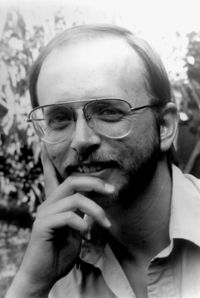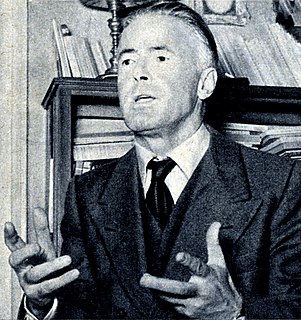A Quote by Mahatma Gandhi
Religion to be true must satisfy what may be termed humanitarian economics, that is, where the income and the expenditure balance each other.
Related Quotes
The true object of religion is to bind mankind together, and to bind them all to God. If we see that in the name of religion, men, instead of promoting peace on earth and good-will among men, are trying to show their antagonism and animosity towards each other, then certainly we must stand forward with our voice of protest, and say that religion is defeating its own legitimate object.
The incipient magician will confess his faith to a universal religion. He will find out that every religion has good points as well as bad ones. He will therefore keep the best of it for himself and ignore the weak points, which does not necessarily mean that he must profess a religion, but he shall express awe to each for of worship, for each religion has its proper principle of God, whether the point in question be Christianity, Buddhism, Islam or any other kind of religion.
PLEASURE and pain are undoubtedly the ultimate objects of the calculus of economics. To satisfy our wants to the utmost with the least effort - to procure the greatest amount of what is desirable at the expense of the least that is undesirable - in other words, to maximize pleasure, is the problem of economics.
I suspect that religion is a necessary evil in the childhood of our particular species. And that's one of the interesting things about contact with other intelligences: we could see what role, if any, religion plays in their development. I think that religion may be some random by-product of mammalian reproduction. If that's true, would non-mammalian aliens have a religion?
Service is the measure of greatness; it always has been true; it is true today, and it always will be true, that he is greatest who does the most of good. Nearly all of our controversies and combats grow out of the fact that we are trying to get something from each other--there will be peace when our aim is to do something for each other. The human measure of a human life is its income; the divine measure of a life is its outgo, its overflow--its contribution to the welfare of all.
If cuts have to be made, the question then becomes which expenditure adds the least value? This is possibly what drives companies to reduce their advertising expenditure - simply because they do not understand its full value and especially as it is usually the single biggest investment on the balance sheet.
We must begin looking at each other as brothers and sisters...and not walking brochures. We must see each other's strengths and encourage those strengths....We must see each others weaknesses and be patient with those weaknesses... sometimes even look beyond what we see as "weaknesses" and move on with compassion and love and respect. That takes true faith.
We commonly say that the rich man can speak the truth, can afford honesty, can afford independence of opinion and action;--and that is the theory of nobility. But it is the rich man in a true sense, that is to say, not the man of large income and large expenditure, but solely the man whose outlay is less than his income and is steadily kept so.








































